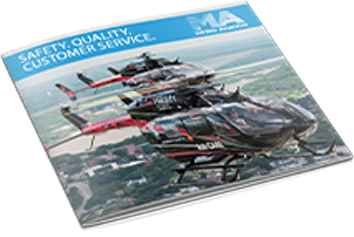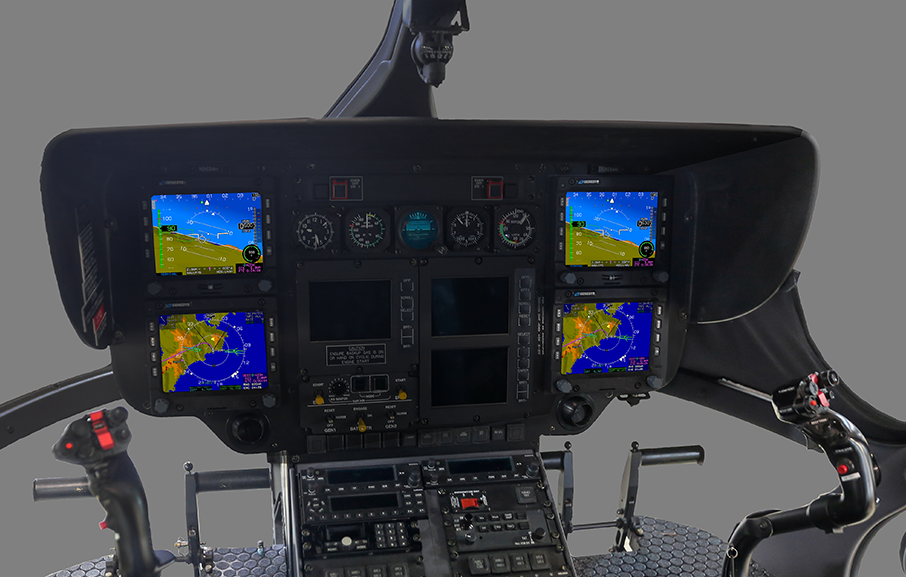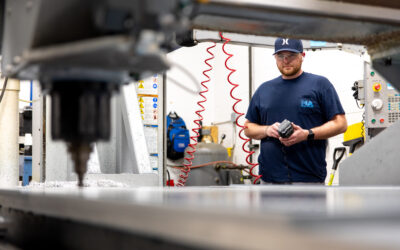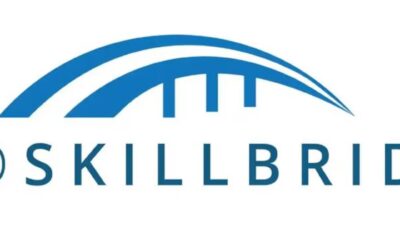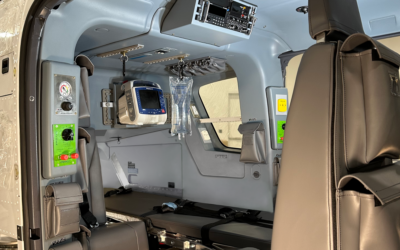Genesys Aerosystems earns IFR certification for EC145e
February 18, 2019
Source: Genesys Aerosystems
Two-axis IFR HeliSAS autopilot is designed for dual-pilot operations, while a three-axis IFR HeliSAS is certified for single-pilot operations
Genesys Aerosystems announced today that the company has earned certification (STC and TSO) for an IFR-certified Helicopter Stability Augmentation System (HeliSAS) targeted for legacy Part 29 twin-engine helicopters.
The new HeliSAS IFR system is based upon the popular VFR HeliSAS; however, the new system adds more robust hardware and redundancy for the harsher environment and heavier controls of larger helicopters. HeliSAS IFR is designed for two-axis (pitch and roll) autopilot configuration for dual-pilot IFR operations and three-axis (pitch, roll, and yaw) autopilot configuration for single-pilot IFR operations.
“We have received an overwhelming number of inquiries from helicopter operators around the world about an IFR-certified version of our popular HeliSAS,” stated Jamie Luster, Director of Sales and Marketing for Genesys Aerosystems. “Our IFR-certified HeliSAS for both single- and dual-pilot operations will give operators a system that delivers more performance at a lighter weight and lower cost than anything currently available on the market. In addition, the ease of use and installation allows owners to remove an older obsolete system and upgrade to a new high-performance SAS and autopilot with a new 24-month warranty.”
Key features of the Genesys Aerosystems HeliSAS IFR Autopilot and Stability Augmentation System include:
• Automatic recovery to near-level flight attitude at all airspeeds
• Beep trim to easily select altitude, vertical speed, airspeed, and heading targets while keeping hands on the controls
• Altitude-command and altitude-hold functions
• Fly-Through System engagement throughout all phases of flight from startup to shutdown
• Redundant, ruggedized flight control computers
• Fail operable system
• Full-authority with parallel actuators
• Altitude Preselect
• Two-axis (pitch and roll) for dual-pilot applications
• Three-axis (pitch, roll, and yaw) for single-pilot applications
• Easy Installation – no series actuators, feel springs, or magnetic breaks
• Lightweight – Installed weight of less than 35 pounds
“With support from Metro Aviation, the first IFR HeliSAS STC and TSO is aboard the Airbus Helicopters EC145e. These helicopters are heavily used by EMS, executive and special mission aircraft around the world. These operators need a capable and redundant SAS that allows them to operate in all kinds of weather,” said Luster. “The simple addition of the Genesys Aerosystems HeliSAS IFR autopilot will ensure that their crews and passengers will fly any mission in any weather with the greatest margin of safety.”
For more information on Metro Aviation and the EC-145e, please visit https://www.metroaviation.com/ec145e/.
Luster noted that the two-axis HeliSAS IFR autopilot system for Part 29 helicopters is priced at $186,475 (not including installation) and the three-axis HeliSAS IFR for single-pilot operations is priced at $211,375 (not including installation). Please contact helisas.sales@genesys-aerosystems.com for further STC opportunities.
Stay Updated with Metro
Metro Achieves AS9100 Certification
Metro Achieves AS9100 Certification APRIL 23, 2025 Metro is proud to announce that it has officially achieved AS9100 certification, marking a significant milestone in the company’s ongoing commitment to quality, safety, and continuous improvement in the aviation...
Metro Officially Recognized as a DoD SkillBridge Employer
Metro OFFICIALLY RECOGNIZED AS A DOD SKILLBRIDGE EMPLOYER APRIL 17, 2025 Metro Aviation proudly recognizes the talent, discipline, and strong work ethic that military members bring to its organization. With over 40% of its workforce made up of Veterans, the company...
Metro Aviation Unveils Upgraded H135 Air Medical Interior
Metro Unveils Upgraded H135 Air Medical Interior March 12, 2025 Metro Aviation is introducing its latest air medical interior for the H135, featuring notable upgrades while retaining popular elements from the previous design. “We developed this interior based on...
Download Brochure
Metro Aviation is constantly growing our capabilities and expanding our reach. Metro holds more than 30 Supplemental type Certificates (STC) and completes about 35 aircraft each year for U.S. customers anf global clients.
